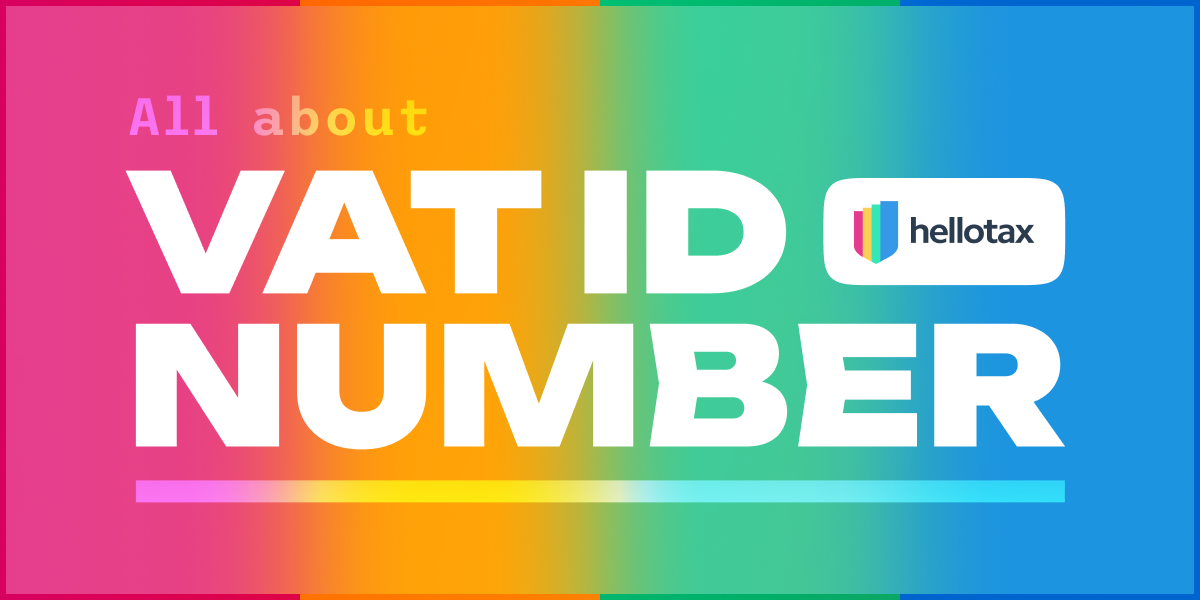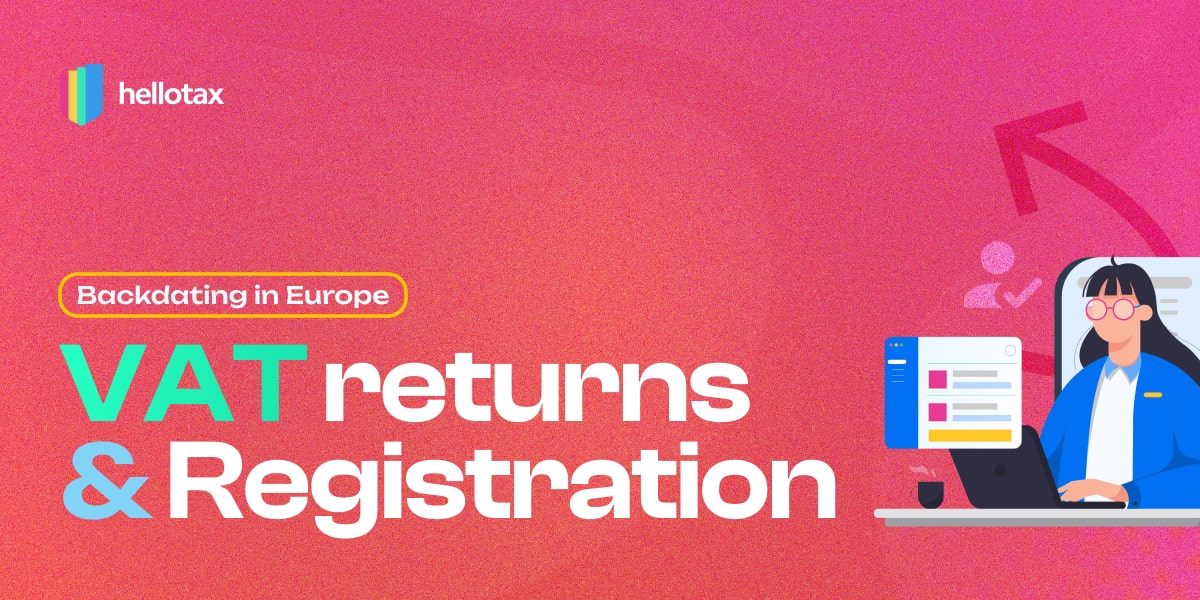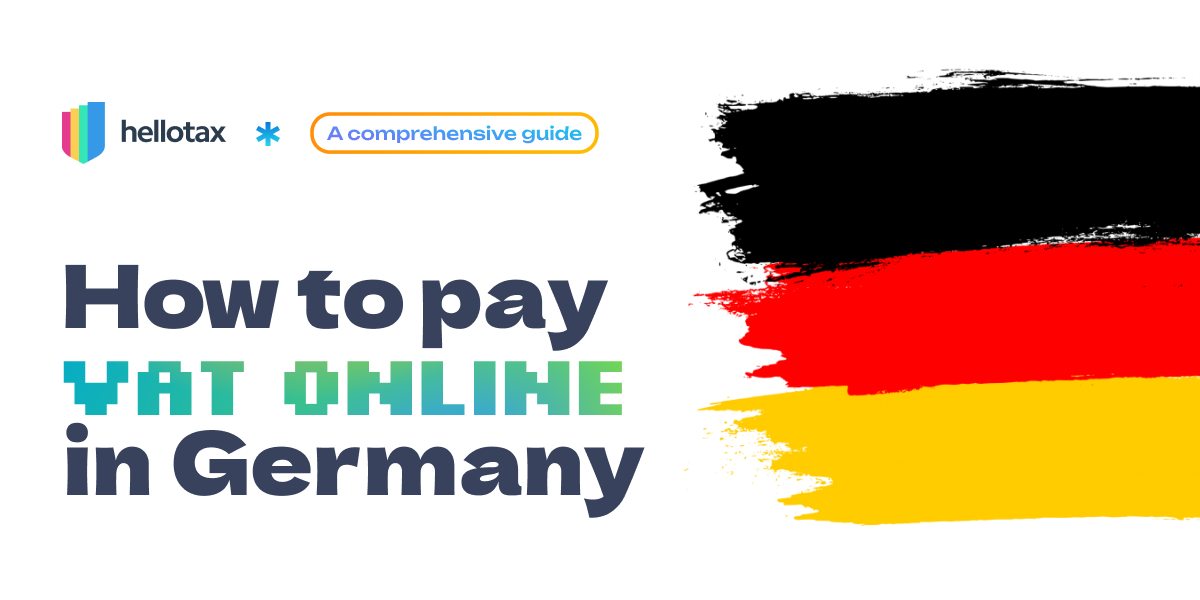The OSS is seen as a simplification of VAT obligations for online retailers. However, this is not always the case. For Amazon and FBA sellers in particular, a One-Stop-Shop registration is not always worthwhile. Find out more in the following article.
Antonia Klatt
Last Updated on 10 June 2022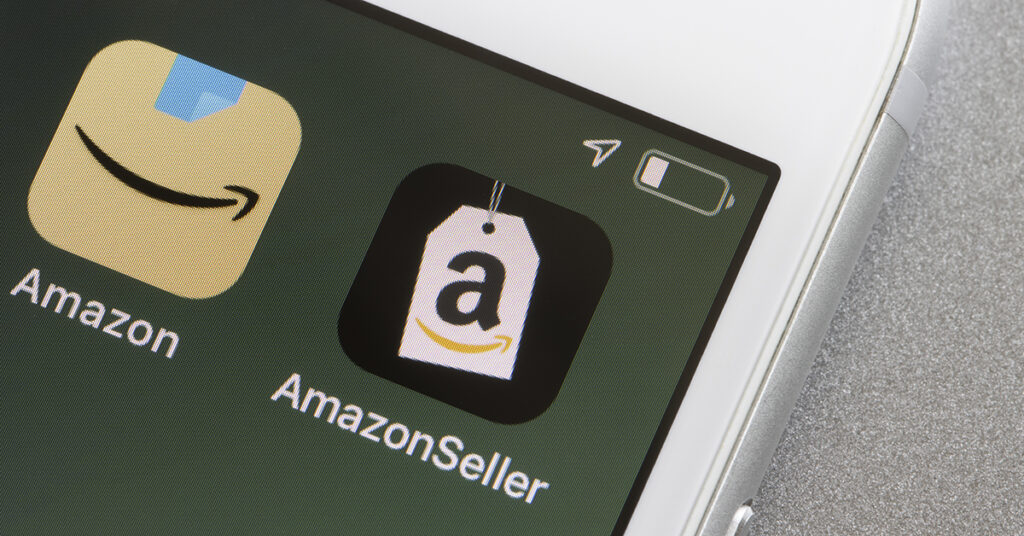
What does the One Stop Shop have to do with Amazon?
The One-Stop-Shop is part of a new package of VAT regulations that were introduced in July 2021 in the European Union. The path to VAT compliance was fundamentally changed by OSS for most online retailers. This also applies to Amazon sellers.
The One-Stop-Shop changes the place where VAT is paid – based on the place of sale and the place of delivery. In principle, it only applies to sales to private customers, i.e. B2C transactions, within Europe, so-called intra-community distance sales. The norms of the new VAT package mainly influence the following aspects:
- Delivery thresholds in the EU
- Taxation of goods sold in B2C distance selling
- VAT registration duty
What changes does the One-Stop-Shop entail for Amazon retailers?
The legal situation for Amazon retailers, so far and since the introduction of the One Stop Shop, largely corresponds to that of other online retailers who sell products via their own websites. Previously, Amazon sellers had to consider the following VAT aspects:
- A VAT registration was required in the home country.
- VAT registrations were compulsory in countries in which the country-specific delivery thresholds were exceeded.
- Country-specific delivery thresholds, usually € 35,000 or € 100,000, were exceeded by B2C sales in this country.
- In all countries in which VAT registrations were available, advance VAT returns had to be submitted.
- In these countries the VAT had to be paid separately.
- All deliveries after exceeding a delivery threshold had to be charged with the country-specific VAT rate, all deliveries before exceeding the delivery threshold were treated as domestic sales.
The OSS does not affect domestic deliveries. The new set of rules only affects cross-border sales and deliveries. In the course of the introduction of the One Stop Shop, the delivery thresholds were also abolished and replaced by an EU-wide limit of € 10,000. As soon as this threshold is reached through deliveries to all EU foreigners, VAT registrations are compulsory in all countries in which the goods are sold. Many Amazon retailers would have to register in many more countries and generally faster due to this lower threshold.
Instead, Amazon FBA retailers can also register for the OSS. In this case, the delivery threshold is completely omitted and the following rules apply:
- A VAT registration must exist in your home country.
- As usual, all domestic deliveries are listed in a domestic VAT return.
- In your home country, or in the case of non-EU companies in an EU country of your choice, you must complete an OSS application.
- All cross-border deliveries to another EU country are sorted and listed in an OSS return in the home country.
- All VAT debts are collected collectively in the country of OSS registration.
- From the first sale, the VAT rates of the delivery country must be applied.
Amazon retailers basically only need a single VAT registration and an OSS registration. In return, however, different VAT rates have to be applied – a major complication for those Amazon sellers who sell products from several niches or product categories to which country-specific reduced tax rates are also applicable. Another complication for Amazon retailers with OSS registration results from the major exception of the One-Stop-Shop: storage abroad.
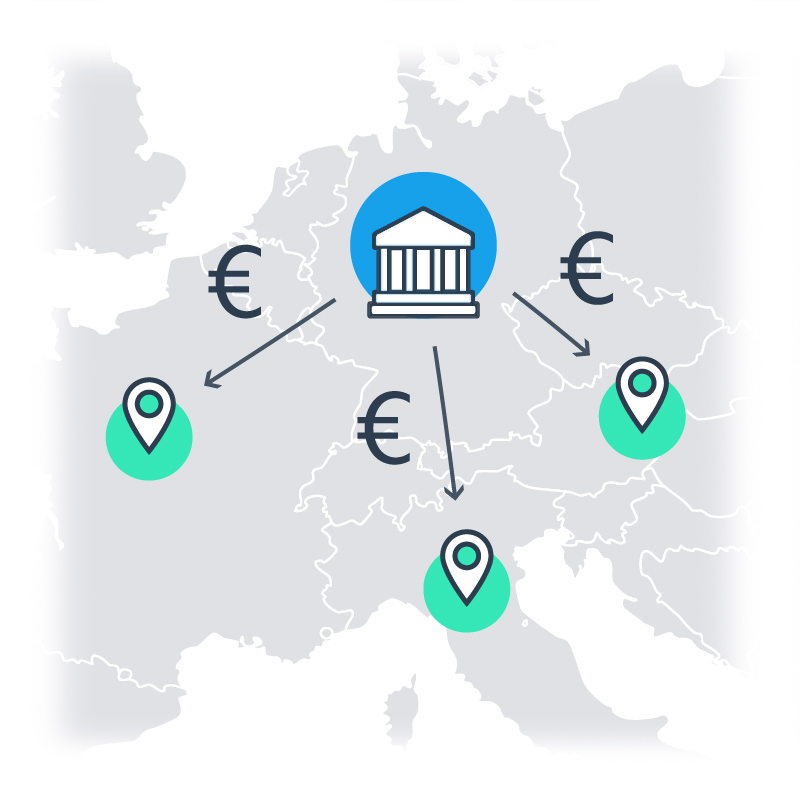
Hellotax One-Stop-Shop Solution
- Automated identification of B2C sales
- Automated determination of your tax rates
- Handling of OSS registrations and reports
- Quality control for your transactions
Which OSS rules apply to FBA sellers?
For Amazon retailers who participate in a Fulfilled-by-Amazon Program, the One-Stop-Shop is a bigger hurdle. When participating in an FBA program, Amazon retailers agree to the storage of their goods in a large number of countries. For example, within the PAN-EU program products can be stored in England, France, Germany, Italy, Spain, Poland and the Czech Republic.
Unfortunately, storage abroad is an exception to the One-Stop-Shop system. Therefore, Amazon retailers who use FBA and OSS still have to register for VAT in all storage countries. Of course, FBA sellers do not always know exactly in which states their products are currently in stock. Therefore, a VAT registration is necessary from the start of FBA use in all countries that are part of the respective program, despite an existing OSS registration.
With the VAT registrations, there are known obligations on Amazon retailers, for example the submission of regular VAT returns. Caution is advised here. This is because not all deliveries from foreign warehouses are processed via local VAT returns, just as they do not all appear in an OSS return. Every combination of storage country and delivery country must be observed. They show in which return the transaction is to be included, to whom the VAT liability is to be paid, and which VAT rates have to be used.
For Amazon retailers, both the rules of the One-Stop-Shop, which state that cross-border deliveries are processed via OSS, as well as the rules of general local VAT returns, which state that deliveries from abroad are processed there for VAT, apply.
Example: The easiest way to show the rules is an example. A German Amazon FBA dealer has registered for the One-Stop-Shop. He also stores products in Poland and the Czech Republic as part of an FBA program.
- Sales from Germany to Poland and the Czech Republic are reported in the OSS return in Germany. The respective foreign VAT rates are applied and the entire VAT liability is collected in Germany and paid as part of the OSS program.
- When using OSS, no delivery thresholds can be applied. Furthermore, VAT identification numbers and the submission of VAT returns are required in Poland and the Czech Republic.
- Sales from warehouses in Poland to Polish customers are carried out in Poland. Polish VAT rates will be applied and the VAT liability for these transactions will be paid in Poland upon filing a Polish VAT return.
- Sales from warehouses in Poland to Czech customers are handled through the One Stop Shop. Czech VAT rates are applied here and the VAT liability for these transactions is paid via Germany. These sales can also be found in the OSS return.
- Sales from warehouses in Poland to German customers are also processed via the OSS, even though Germany is the home country of the FBA dealer. German VAT rates are applied and the VAT liability for these transactions is paid directly to Germany. However, it is paid via the OSS, as the delivery crosses borders.
On our blog you can find more information about the One-Stop-Shop in Germany.
Amazon and FBA Business: One-Stop-Shop or Not?
As has become clear, participating in the OSS program can simplify or complicate the lives of online retailers. The One Stop Shop is usually recommended for pure Amazon retailers. Since the delivery thresholds have been combined and lowered, Amazon sellers who only ship from their home country save a lot of administrative effort by participating in the OSS. However, you must ensure that the correct VAT rates are used.
On the other hand, the One-Stop-Shop for FBA sellers isn’t always worthwhile. Calculating and dividing the transactions takes a lot of time. In some cases, it is better for Amazon FBA dealers not to register for the One Stop Shop and instead process sales using the existing local VAT registrations. We went through some more detailed One-Stop-Shop examples for you on our blog.
Finally, it should be noted that the situation of the One-Stop-Shop for small businesses is once again different. Since they may not exceed the delivery threshold, registration for the OSS can even be disadvantageous, depending on the local VAT rates.
Technical solution for Amazon FBA dealers with OSS registration
Many Amazon sellers with OSS registrations are faced with a major task thanks to the new regulations: From now on, thanks to the new EU-wide delivery threshold, they must take the local VAT rates into account for every transaction. Amazon retailers who use OSS and FBA programs also have to overcome another hurdle: sorting and calculating the transactions.
hellotax offers the optimal solution for both sellers. Our self-developed OSS software sorts all transactions, recognizes VAT rates automatically, and compiles OSS reports independently, which contain the storage and delivery country combinations separately and can therefore be submitted immediately. Furthermore, our hellotax team of tax consultants and local experts can also take care of the OSS registration and the submission of OSS reports. Contact us today, discuss your options with us and find out more about our offers

Book a free consultation
Our VAT experts are happy to help you. Book a free consultation today!
Frequently Asked Questions
Yes, the One Stop Shop is basically open to all dealers. Registration happens on a voluntary basis. However, once you have successfully registered, you are obliged to participate in the OSS for 2 years before you can deregister.
Since the abolition of the country-specific delivery thresholds, local VAT registrations and tax obligations have become more frequent and approach faster. The OSS can help here. In principle, all transactions can be processed via the home country.
The storage of goods abroad is the only exception to the OSS. As soon as products are stored abroad, for example as part of Amazon’s PAN-EU program, you must register for VAT in the storage countries. These existing registrations and the following obligations then increase the administrative effort when submitting VAT returns and OSS notifications.
Whether the OSS is worthwhile for Amazon and FBA sellers depends on the FBA program and thus the number of storage countries, as well as the sales volume of the seller. You can find more information on this on our blog.

